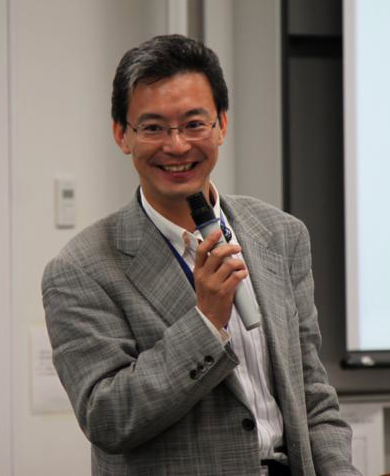- takeoka@waseda.jp
- 03-5369-7324
Message from Professor TAKEOKA

Welcome to Takeoka Laboratory. Our Lab studies biomolecular assembling sciences for nano-medicine. Molecular assembling and cooperative phenomena of biomolecules and/or biomacromolecules give us useful implications to construct smart nanodevices having multi-functions for biomedical application (Nano-medicine). Our research group quests the molecular assembling science and engineering of amphiphilic molecules such as phospholipids, glycolipids, aminolipids, and polyethyleneglycol (PEG)-lipids interacted with biomacromoleucles such as bioactive compounds, genes or proteins, in order to design and construct the nanocarriers in biomedical applications such as controlled drug delivery and release systems.
We have already established the large scale production of the phospholipid vesicles (liposomes) encapsulating concentrated hemoglobin with the optimized formulation of bilayer membrane to afford high blood compatibility as oxygen carriers. The particles have high encapsulation efficiency, high stability, long blood circulation, high safety, and high oxygen carrying capacity. By utilizing this technology, we have successfully developed novel nanocarriers bearing glycoproteins or the related ligands of platelet constituents as platelet substitutes with high haemostatic ability, bearing pH-sensitive aminolipids for more sophisticated drug carriers, or bearing cationic aminolipids for effective and low cytotoxic gene or protein carriers.
By also utilizing Waseda’s nanotechnology, we could proposed novel nanosheets made of biocompatible and biodegradable materials with controllable size, shape, and thickness for biomedical applications such as wound dressing materials or controlled drug released materials. The nanosheets have unique properties such as high adhesiveness, high flexibility, high membrane permeability, high transparency originated from tens nanometer thickness. Quite recently, our target has expanded to bio-imaging fields by using our original nanoformulation technologies and by combining combinatorial chemistry and mass spectroscopic screening of molecular complexes. We have already submitted new tools such as His-tag adapting molecular probes, nanothermometer, redox-responsive molecular probes.
The goal of our research group is to develop the synthetic and assembling technology of bio- and bio-related molecules to construct novel nanocarriers for drugs, antibodies, enzymes, probes, etc., that possess appropriate intra- and extra-vascular delivery and extra- and intra-cellular delivery for biomedical applications. Each researcher makes to conduct the design and synthesis of molecules and the molecular assemblies, preparation of the molecular assemblies, the structural and functional analyses, and evaluation of functions including in vitro and in vivo studies with adverse points also. The end should be set to meet with not only pure research demands but also industrial and/or medical demands. Each member always challenges to promote the interdisciplinary projects with elaborate research plans and reliable data, in tight partnership with biomedical institutions and bio-related companies. This is the most important training of practical young researchers for the future.
